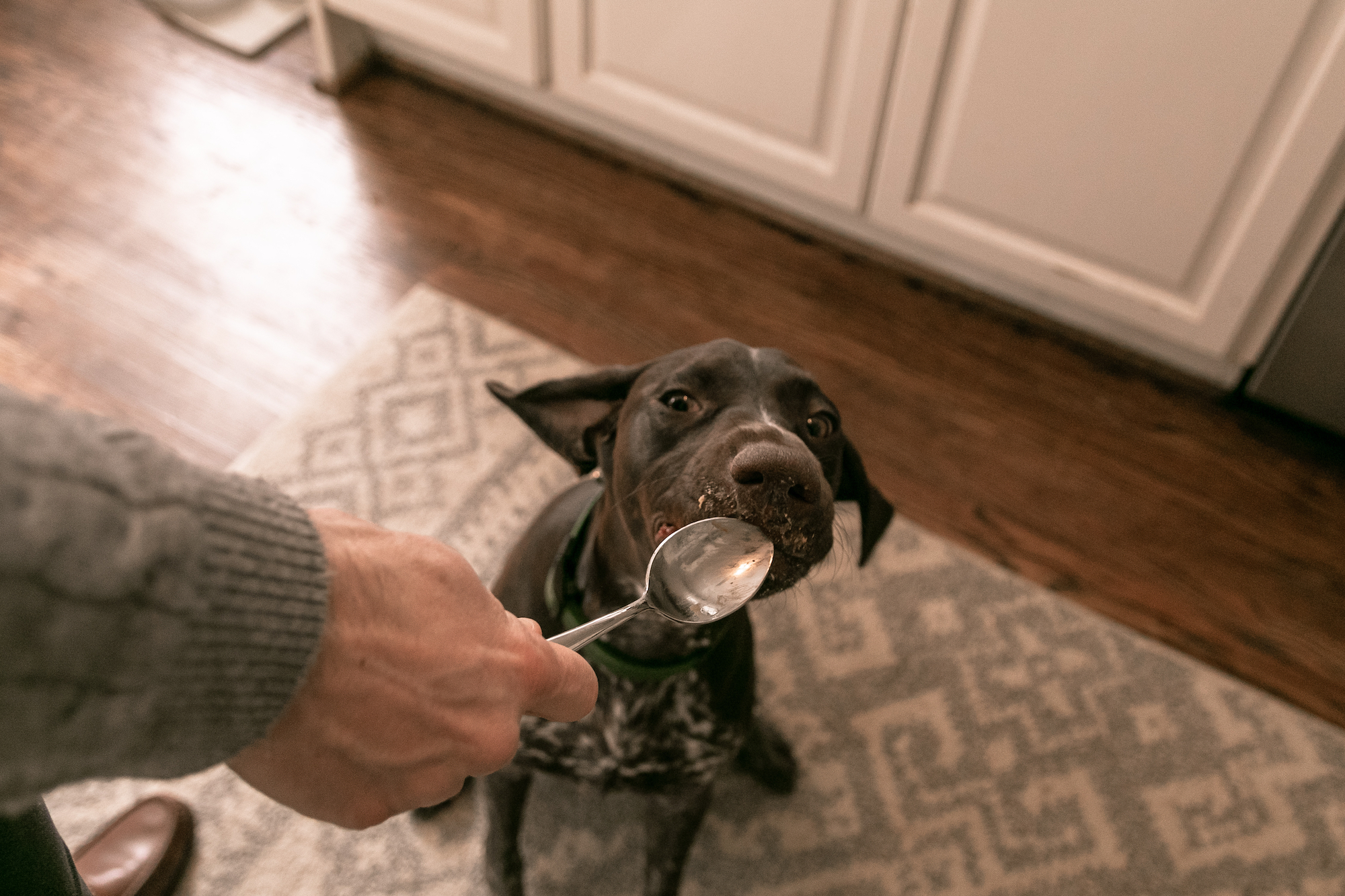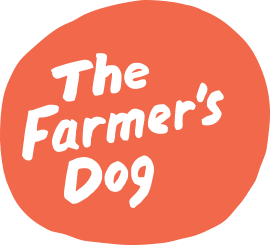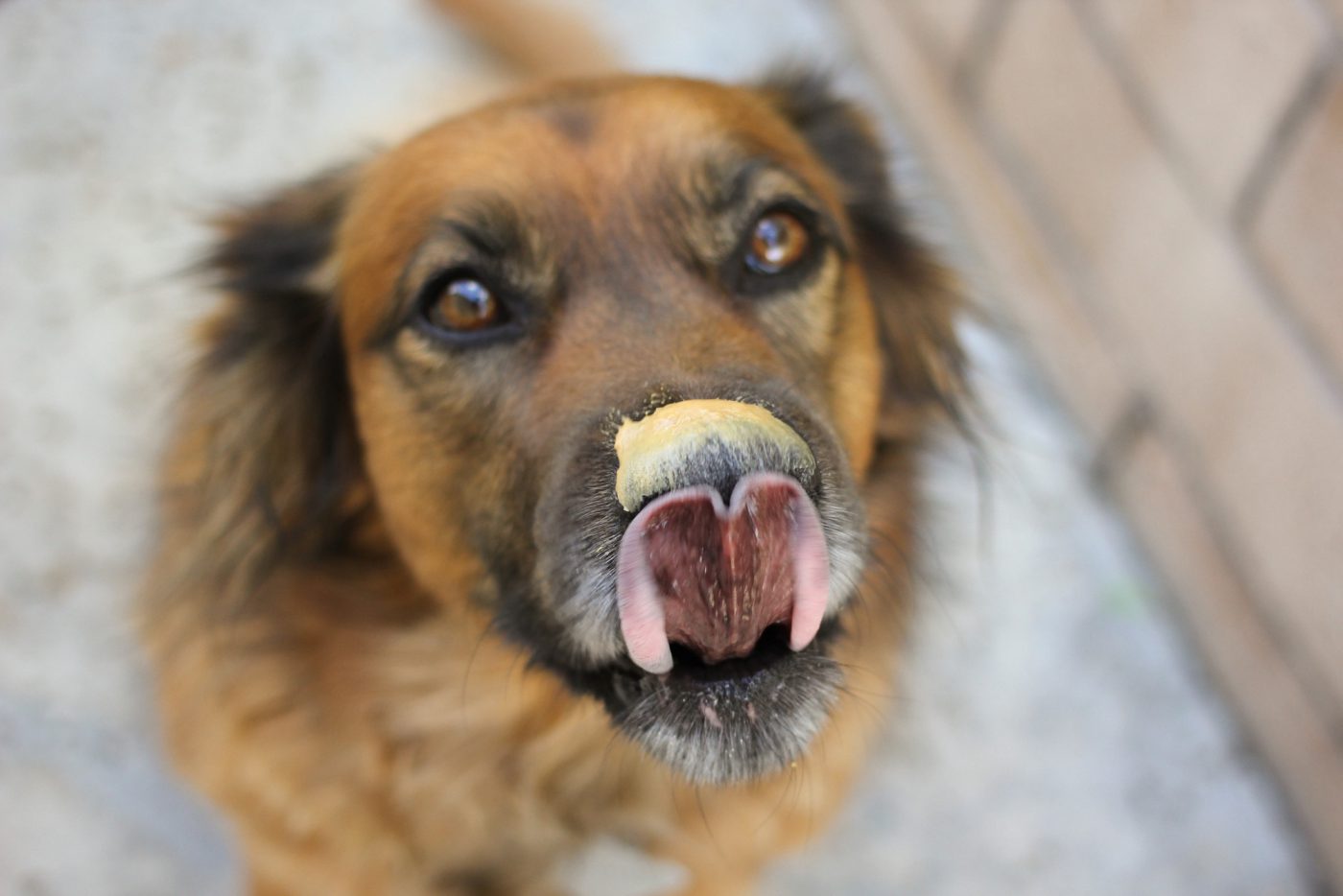Dogs can indeed eat peanut butter, but make it an occasional treat, not a daily habit.
Nut butters like peanut butter and almond butter are a popular treat for dogs, especially for those times when you need a little something extra enticing. Though most nut butters are generally safe, you should be mindful of the high fat and calorie content. It’s also imperative that you check the ingredient list and avoid nut butters containing the artificial sweetener xylitol, which is extremely toxic to dogs even in small amounts.
“Are all nut butters safe for dogs?”
Butters made from peanuts, cashews, hazelnuts, and almonds are safe for dogs; macadamia butter is not safe—avoid it completely as this type of nut is toxic to dogs.
Peanut butter is rich in fat and calories which is probably why dogs love it so much. Like most nut butters, peanut butter contains around 100 calories per one tablespoon serving so if you’re feeding it at all, it’s best to feed only in small amounts to avoid weight gain, which is a serious health issue for dogs.
Peanut butter may also contain sugar, which is bad for dogs, and some varieties may contain xylitol, which is very bad for, and potentially deadly to, dogs. Some commercial brands of peanut butter may also contain trans fats, and added salt, which should be avoided.

“What are the benefits of feeding my dog peanut butter?”
Peanut butter does technically have some benefits. First and foremost, most dogs absolutely love it, so it can act as a high-value treat for when you need something that commands attention. A small dollop of peanut butter is often used (with vet approval) to give medications. It’s also the perfect substance to put in a rubber toy or puzzle toy to provide your dog a long-lasting occupation.
Nutritionally, peanut butter contains an array of vitamins and minerals including vitamin E and B vitamins, folate, copper, and magnesium. Peanut butter is rich in protein, but since it belongs to the legume family, it’s lower in essential amino acids methionine and cysteine than animal protein.
“What are the risks of feeding my dog peanut butter?”
In terms of drawbacks, nuts and nut butters are high in fat and calories, so should be fed sparingly if at all. High intake of fatty foods can contribute to obesity. Peanut butter is also unbalanced when it comes to the kinds of fats it contains—it has a very high ratio of Omega-6 to Omega-3 fatty acids. Omega-6 fatty acids trigger inflammation, so it’s important that your dog’s diet has the right balance of these fats. Feeding too much peanut butter can throw off this balance.
Beyond the calories, here’s another thing to consider about peanut butter: if you’re buying a name-brand, commercial peanut butter, there’s a good chance it has added sugar, sweetener, or trans fats. So, many people opt for “natural” peanut butter, such as is found in the bulk aisle of the supermarket. However, raw peanuts can host the fungus that produces dangerous aflatoxins. So it’s important that any fresh-ground or natural peanut butter be made from fresh, roasted (not raw) peanuts.
“What should I do if my dog eats xylitol?”
If your dog ingests any amount of peanut butter containing xylitol—or any other food with that ingredient—contact a veterinarian immediately. Xylitol is very hazardous to dogs, and medical intervention could save your pup’s life even if they don’t show symptoms right away.
“How much peanut butter can dogs eat?”
Peanut butter and other nut butters should only be fed occasionally and in small amounts. Choose low-sodium and unsweetened options. Feed tiny dogs no more than a half teaspoon, small dogs no more than a teaspoon, and larger dogs no more than one tablespoon of peanut butter in a day (this doesn’t mean every day—again keep to an occasional treat).
“How can I feed my dog peanut butter?”
You can feed nut butters as-is or incorporated into recipes for homemade dog treats. Try using peanut butter as a “plug” when filling your dog’s Kong toy—that is, instead of filling the whole toy with high-fat peanut butter, fill it with a healthy treat, and use the peanut butter at the opening. For bath-time fun, spread some almond butter on the (clean!) shower wall to keep your pup busy while giving them their bath!









